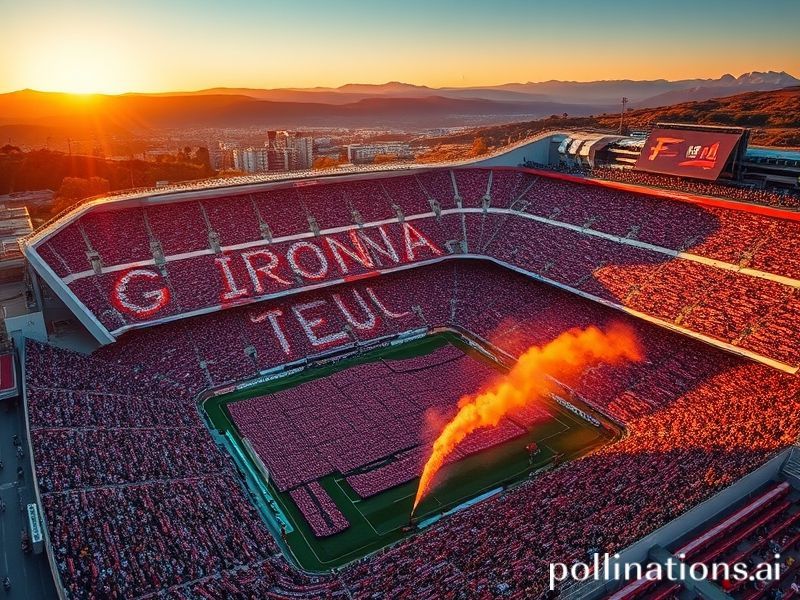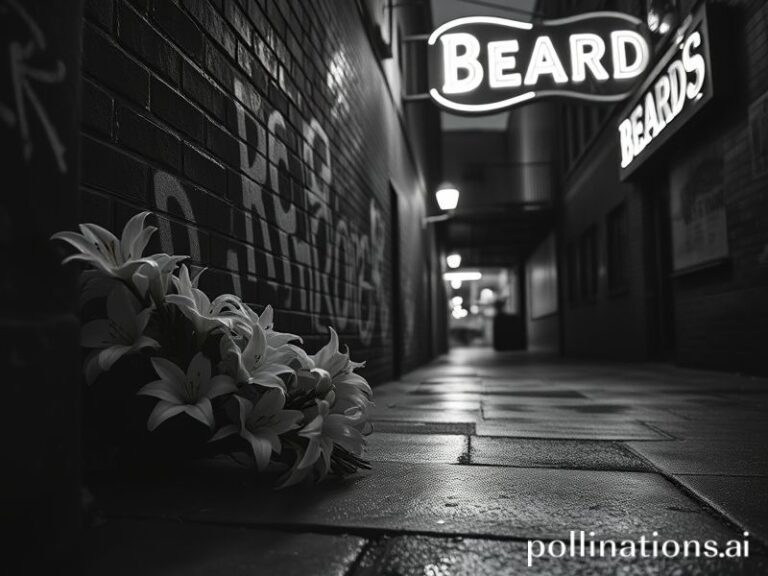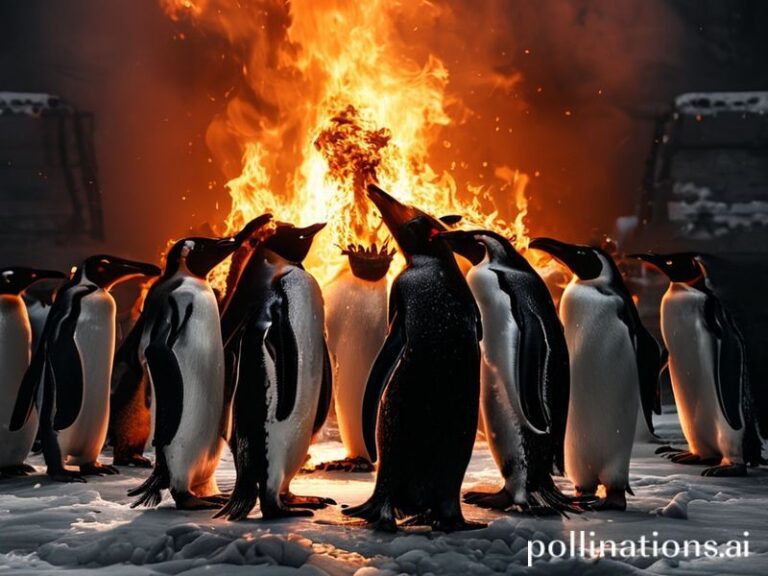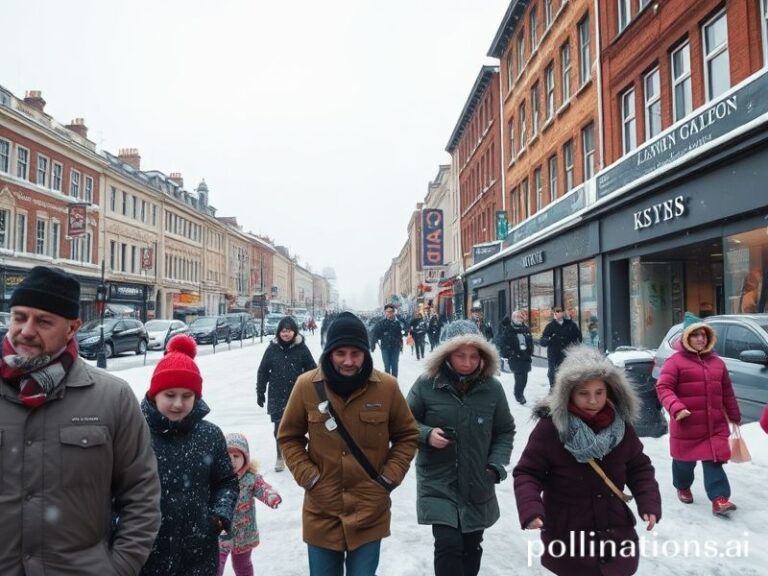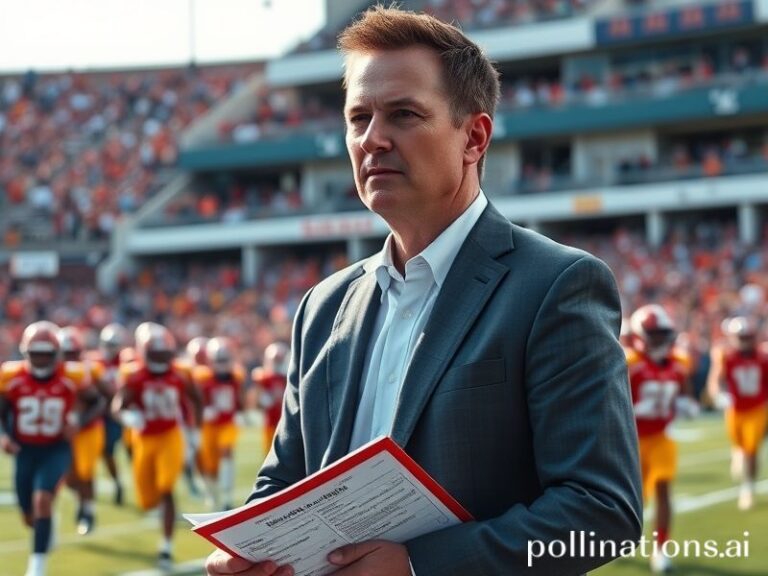Girona FC: The Catalan Underdog Upending Europe—And the Geopolitics of Football
Girona FC: How a Catalan Minnow Learned to Swim with Sharks and Still Smell Like Roses
By Dave’s Locker International Desk
There’s a moment, usually around the 75th minute at Estadi Montilivi, when the seagulls circling overhead look suspiciously like vultures. They’re not there for the paella scraps; they’re waiting to see whether Europe’s newest overachiever will finally do the decent thing and collapse. Girona FC—population 101,000, budget smaller than the annual flower bill at the Bernabéu—keeps refusing to die. Instead, they pass the ball around like they’re allergic to gravity and the scoreboard keeps blinking in disbelief.
In any sane universe, a club whose biggest historical claim was once finishing 11th in the second tier should not be leading La Liga past Christmas. Yet here we are, living in the timeline where Donald Trump sells bibles and Girona topples Atlético Madrid with the nonchalance of a barista misspelling your name. The international significance? Simple: if Girona can gate-crash the Champions League cartel, every hedge-fund hobbyist from Cincinnati to Singapore will suddenly discover the romance of a 14,000-seat stadium wedged between a furniture outlet and a recycling plant.
The geopolitics are deliciously absurd. City Football Group—yes, the Emirati spiderweb that also owns Manchester City, Mumbai City, and presumably a controlling stake in your childhood dreams—bought 47 percent of Girona in 2017. Critics scream about “sportswashing,” as if geopolitical redemption can be purchased for the price of a left-back. Meanwhile, Catalan separatists wave their flags in the same stands where Abu Dhabi’s soft-power accountants sip espresso. Somewhere in the afterlife, George Orwell is frantically editing the footnotes to Homage to Catalonia.
Globally, the Girona story is catnip for anyone who has ever been told they’re too small, too poor, or too geographically inconvenient. Streaming numbers in South Korea spiked after Lee Kang-in’s Valencia got thrashed 4-1; Japanese fans have adopted the club because the crest looks like a particularly determined origami swan. Even in Brexit-battered Britain, pubs report an uptick in patrons asking for “whatever Girona’s drinking.” The world loves an underdog until the underdog starts outsourcing its bark to Gulf-state kennels, but let’s not sour the fairy tale just yet.
On the pitch, manager Míchel has weaponized positional play with the fervor of a philosophy undergrad who just discovered Foucault. His players press like caffeinated squirrels, recycling possession until opponents begin to question the ontological nature of midfield. Critics call it “sterile domination”; Girona calls it Tuesday.
And then there’s Artem Dovbyk, the Ukrainian striker whose mustache looks like it has its own credit rating. Every goal he scores is a minor act of defiance against the Russian artillery currently reshaping his hometown. When he celebrated against Barcelona by forming a heart with his hands, the gesture was broadcast on split-screen with footage of Kharkiv’s blackouts. Football, ever the shameless opportunist, packaged the moment as proof that sport transcends war. The cynic in me notes that transcendence also sells more jerseys.
Will Girona’s miracle end in tears? Of course. Miracles are like crypto bull runs—spectacular until the blockchain of reality reasserts itself. But the broader significance is already baked in: the illusion that merit still matters in a rigged casino. Every time Girona beats a team whose bench earns more than their entire squad, a junior analyst in Zurich updates the spreadsheet labeled “Market Inefficiencies.”
So let the vultures circle. They’ll have to wait. Girona FC is too busy teaching the world that you can indeed polish a Cinderella slipper, provided you have the right Emirati cobbler on speed dial. And if the slipper eventually shatters? Well, at least the fragments will be recycled—this is Catalonia, after all.

